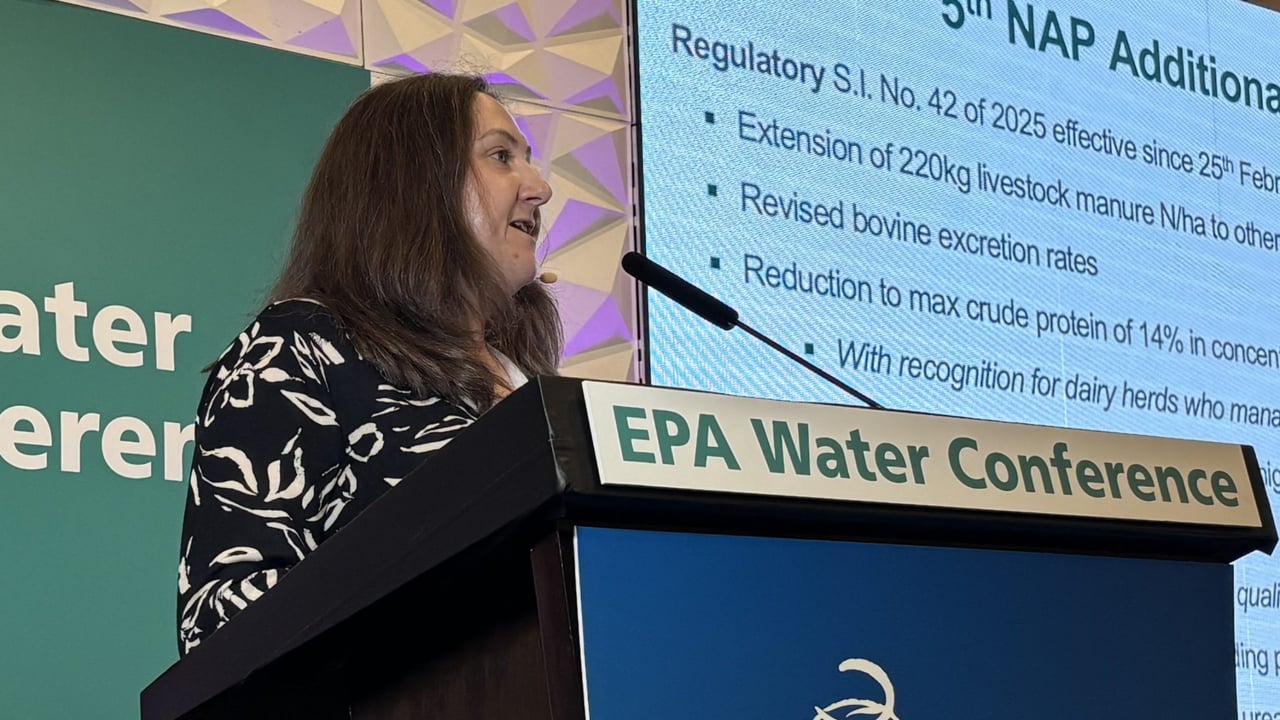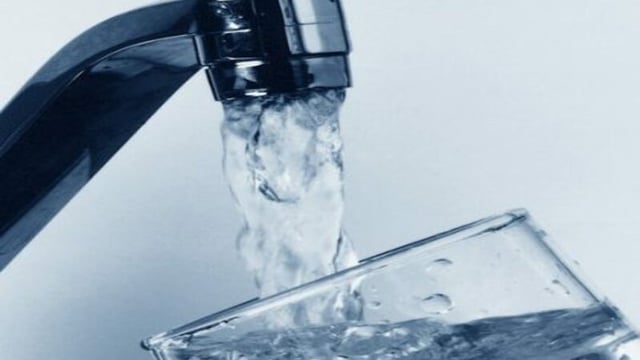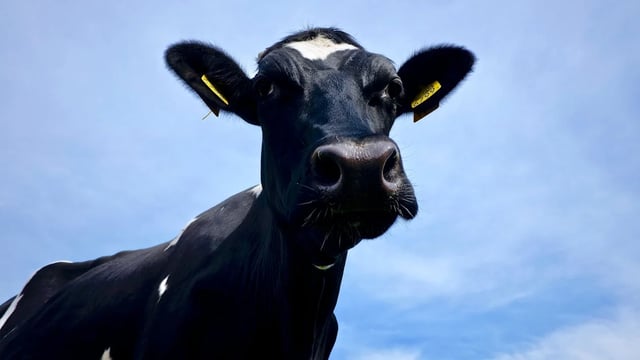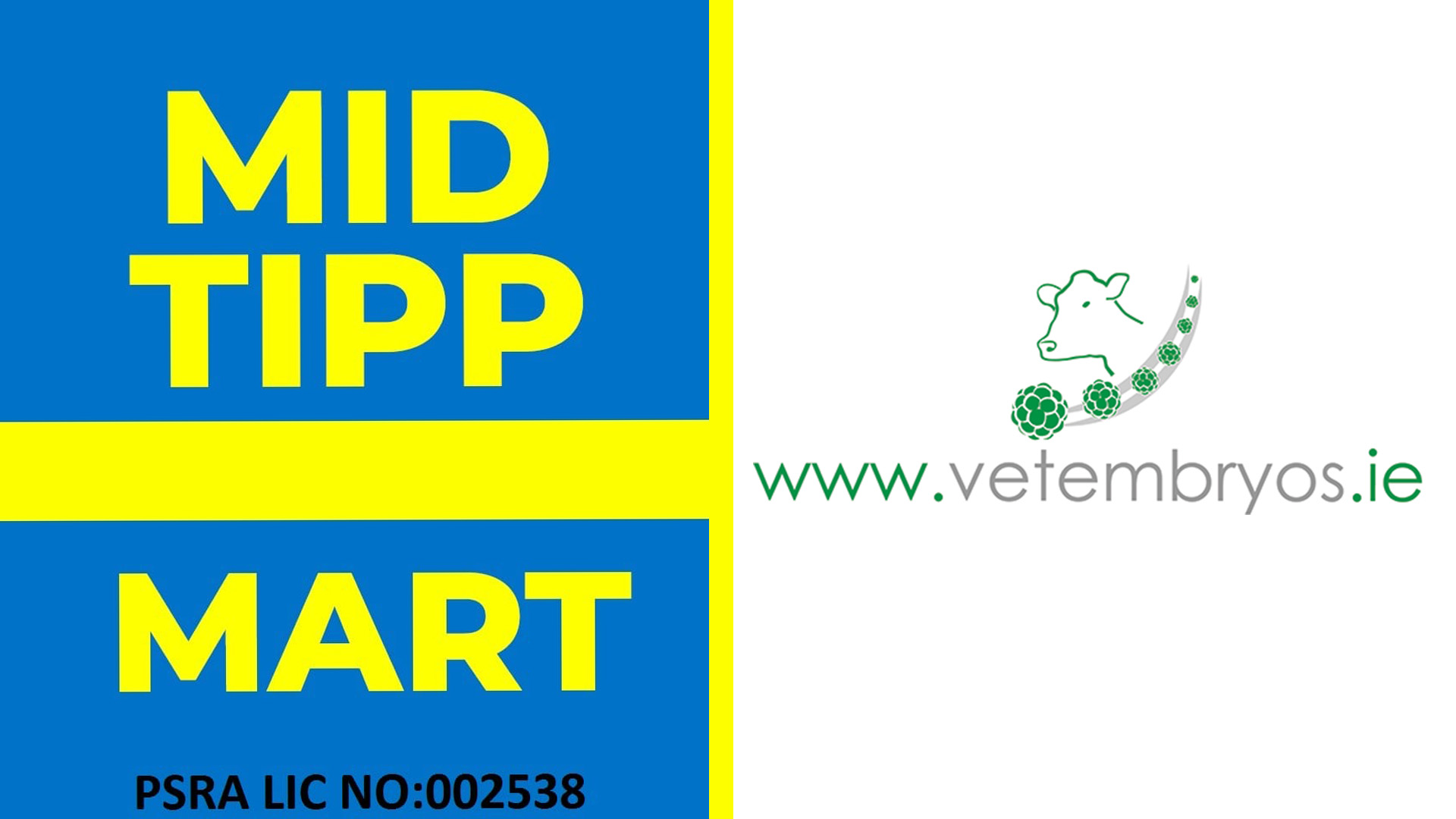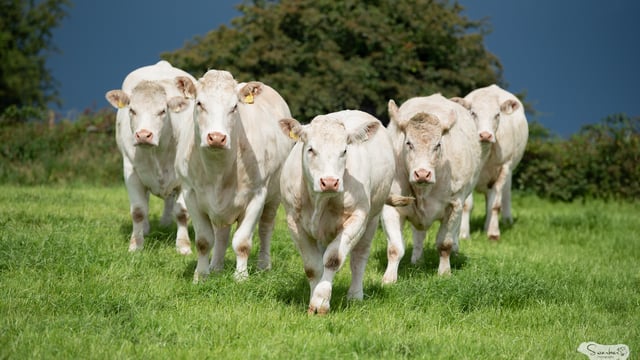Watch: 'Unprecedented' engagement across industry as derogation decision looms
As Ireland focuses on putting a case forward to retain the nitrates derogation post-2025, there is an "unprecedented" level of engagement across the farming community, agri-food industry and Government to improve water quality.
Dr. Noeleen McDonald, who is an assistant agricultural inspector for the Department of Agriculture, Food and Marine, said that there is "no clear science to state that removing the derogation is going to improve water quality".
She stressed at the Environmental Protection Agency's (EPA) Water Conference in Co. Galway this week that despite challenges, progress is being made on improving water quality.
Ireland is seeking to retain its nitrates derogation after 2025, which allows for an excess of 170kg livestock manure nitrogen per hectare to be applied. It is the only member state in the EU seeking to do so.
The Nitrates Action Programme is a key factor in improving water quality and securing the derogation.
As the development of the sixth Nitrates Action Programme is underway, McDonald said this must be as "robust" as possible and "continue the momentum that was built in 2022" when the fifth programme was implemented along with an interim review that followed, with significant measures introduced since.
The derogation remains a "critical component" to supporting Ireland's "unique" system - a predominantly grass-based livestock system, according to McDonald.
Government last December formally applied to the EU for a nitrates derogation post-2025.
During this process to renew, there are three presentations to be made to the EU Nitrates Committee over 2025 where Ireland will make its case. The first of these meetings took place in March.
"Once the commission has gone through that process they will propose an implementing decision for a vote, and then once it gets to that stage, EU members will vote," Dr. McDonald explained at the conference.
In order to renew the derogation, it needs to be a qualified majority vote.
Irish farmers will certainly be keeping a close eye on how this process goes this year.
"There is significant and unprecedented engagement across the Irish farming community, agri-food industry and Government to improve water quality - that's been stepped up in recent years.
"The Government is committed to driving progress through stakeholder engagement and getting that right combination of regulatory and non-regulatory measures," Dr. McDonald added.
While the debate in society as to whether or not Ireland actually should be seeking to secure another nitrates derogation continues, one of the country's top agricultural researchers has said that the focus of industry is, and should be, supporting farmers to undertake measures that will help with the overarching goal - improving water quality.
Teagasc director of research, Pat Dillon, also told the EPA conference this week that he is not convinced that "getting rid of the derogation would improve water quality".
Despite the politics involved in the decision of the derogation, Dillon, who believes campaigns such as the Better Farming for Water programme are going to deliver very positive changes on farms to improve water quality, said that "we have identified where the requirements are" and "we should focus on the actions".

